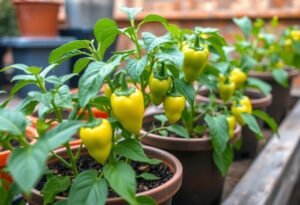What is a Garden Composter?
A garden composter is a container specifically designed to facilitate the composting process. Typically, it holds organic waste materials such as vegetable scraps, fruits, grass clippings, and leaves. With the aid of garden composters, you can efficiently convert your organic waste into compost—a valuable resource packed with nutrients to support plant growth.
Why Invest in a Garden Composter?
Investing in garden composters is a step towards environmental stewardship. They help reduce the amount of waste that ends up in landfills, while enriching the soil with necessary nutrients. By applying natural fertilizer from your composter, you demonstrate a commitment to the health of your plants and the quality of your garden’s produce. Additionally, this practice can save you money by eliminating the need for expensive chemical fertilizers.
Available Types of Garden Composters
There are various designs of garden composters available on the market, ranging from classic wooden or plastic models to more modern enclosed systems that come with ventilation features. The choice of composter should depend on your personal needs, available space, and the type of organic waste you plan to compost. Whether you choose an open composter or a closed one, each offers unique benefits.
How to Use a Garden Composter Effectively?
For your garden composter to work optimally, it’s important to follow a few best practices. Avoid adding meat, dairy, or chemical substances, as these can disrupt the breakdown process. It’s also beneficial to mix different types of materials—both wet and dry organic waste—which will enhance the quality of the compost produced.
Benefits of Composting in Your Home Garden
Composting not only supports your garden but also aids in waste reduction. Garden composters shift our perspective towards recycling, teaching us to leverage our waste in an environmentally friendly manner. By composting, we reduce greenhouse gas emissions that typically occur from decomposing organic matter in landfills.
Which Plants Benefit Most from Compost?
Many plants, from flowers to vegetables, gain immensely from compost use. Plants like tomatoes, cucumbers, and annuals thrive on the organic nutrients provided by garden composters. Regular application of compost significantly improves soil structure and moisture retention, which is crucial for successful gardening.
Building Your Own Garden Composter
Constructing your own garden composter doesn’t require extensive skills. You can use old wooden pallets, fencing wire, or specific composter kits available on the market. Ensuring proper ventilation and air circulation will accelerate the decomposition process. You might also explore online tutorials that guide you step-by-step through the building process.
Conclusion
Investing in garden composters is a step towards a healthier and more attractive garden. Composting is not only a way to minimize waste but also a means to enrich soil with valuable nutrients. Discover the benefits of composting today—your garden will thank you!
Disclaimer
This article is for informational purposes only and does not replace professional gardening advice.

















